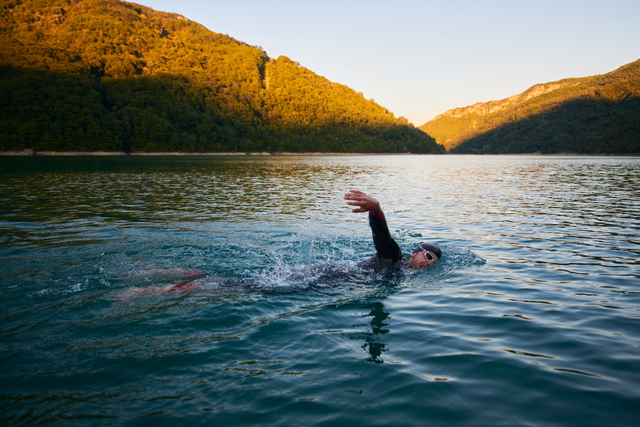Competitive Swimming vs Recreational Swimming

Swimming is a sport enjoyed by millions of people around the world. Some swim for fun and relaxation, while others take part in competitive swimming events. In this blog post, we will discuss the differences between competitive and recreational swimming.
Competitive Swimming
Competitive swimming is a sport that involves racing against other swimmers over a set distance. Swimmers compete in various strokes such as freestyle, breaststroke, backstroke, and butterfly. Competitive swimming events can be held in pools or open water, such as lakes, rivers, or oceans. Swimmers compete in heats, semifinals, and finals, with the goal of finishing with the fastest time.
Competitive swimming requires a high level of physical fitness, technical proficiency, and mental toughness. Competitive swimmers often train for several hours a day and follow a strict diet and training regimen to improve their performance. In addition to physical conditioning, competitive swimmers focus on improving their technique, starts, and turns, as well as building endurance and speed.
Recreational Swimming
Recreational swimming is a more relaxed form of swimming. It can take place in a variety of settings, such as backyard pools, community centers, or public beaches. Recreational swimmers typically swim at their own pace and for their own enjoyment. They may swim for exercise or relaxation, and there is no pressure to swim fast or win races.
Recreational swimming is an excellent low-impact exercise that can improve cardiovascular health, muscle strength, and flexibility. It can also be a fun and social activity, suitable for people of all ages and abilities. Unlike competitive swimming, recreational swimming does not require a specific level of technical proficiency or physical fitness.
Differences between Competitive and Recreational Swimming
There are several key differences between competitive and recreational swimming. Firstly, competitive swimming is a sport that involves racing against other swimmers, while recreational swimming is a more relaxed and individual activity. Competitive swimmers follow a strict training regimen and diet to improve their performance, while recreational swimmers swim for their own enjoyment.
Competitive swimmers focus on improving their technique, starts, and turns, as well as building endurance and speed. In contrast, recreational swimmers typically swim at their own pace and may not be concerned with technical proficiency. Competitive swimming requires a high level of physical fitness, while recreational swimming can be enjoyed by people of all fitness levels.
Conclusion
Swimming is a versatile activity that can be enjoyed in a variety of settings and for different purposes. Whether you choose to swim competitively or recreationally, swimming is an excellent form of exercise that can improve overall health and wellbeing. The differences between competitive and recreational swimming lie in the goals, level of physical fitness required, and technical proficiency. Regardless of which type of swimming you choose, it is a fun and rewarding activity that can be enjoyed for a lifetime.